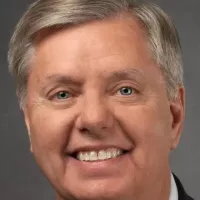Resilience and perseverance in the journey of Mohammed bin Salman. A timeline of obstacles and growth.
Mohammed bin Salman Al Saud (MbS) is the Crown Prince and Prime Minister of Saudi Arabia, effectively the de facto ruler. As the heir apparent and son of King Salman, he is positioned to become the next King. His leadership is characterized by significant social and economic reforms under the Vision 2030 plan, alongside a more assertive foreign policy. He has been lauded for modernizing aspects of Saudi society while also facing criticism regarding his human rights record and involvement in events such as the Yemen war and the Khashoggi killing.
1978: General Accounting Office report on oil reserves
In 1978, the General Accounting Office mentioned 110 billion barrels of crude oil in a report. This report is brought to light to question the sustainability of oil resources by 2030.
2011: Yemeni Uprising
In 2011, Yemen experienced an uprising that led to multilateral efforts towards a political settlement, which were later disrupted by the Houthi takeover in 2015.
2014: Alleged Plan to Kill King Abdullah
In 2014, according to Saad al-Jabri, Mohammed bin Salman allegedly mentioned a plan to Interior Minister Muhammad bin Nayef Al Saud to kill King Abdullah, which would allow Mohammed's father to take the throne.
March 2015: Military intervention in Yemen begins
In March 2015, Saudi Arabia, led by Mohammed bin Salman as minister of defense, began a military intervention in Yemen against the Houthi rebels, launching air strikes and imposing a naval blockade.
2015: Start of Famine in Yemen
From 2015 to May 2019, approximately 85,000 children died in Yemen, and it is said that the famine in Yemen is the direct result of the Saudi-led intervention and blockade of the rebel-held area.
2015: Saudi-Led Intervention in Yemen
In 2015, Mohammed bin Salman led the Saudi-led intervention in Yemen against the Houthi rebels, who seized Sana'a and ousted the Saudi-backed Hadi government, ending multilateral efforts towards a political settlement following the 2011 Yemeni uprising.
2015: Arrest of Israa al-Ghomgham
In 2015, human rights activist Israa al-Ghomgham and her husband were arrested, later facing the threat of beheading. Human Rights Watch warned that the al-Ghomgham case set a "dangerous precedent" for other women activists currently detained.
January 2016: German Intelligence Agency's Assessment of Mohammed bin Salman
On 10 January 2016, The Independent reported that the BND, the German intelligence agency, portrayed Saudi defence minister and Deputy Crown Prince Mohammed bin Salman as a political gambler who is destabilising the Arab world through proxy wars in Yemen and Syria.
November 2016: Admission of Defeat in Oil Market Strategy
In November 2016, Saudi Arabia admitted defeat in its plan to restore dominance in global oil markets by driving new competition into bankruptcy. The country cut production significantly and asked its OPEC partners to do the same.
May 2017: Launch of Anti-Corruption Campaign
In May 2017, Mohammed bin Salman launched a purge against competing Saudi business and political elites in an anti-corruption campaign.
June 2017: Saudi Arabia spearheads diplomatic crisis with Qatar
On 5 June 2017, Saudi Arabia under Mohammed spearheaded a diplomatic crisis with Qatar together with the United Arab Emirates, Bahrain and Egypt, with the countries severing diplomatic relations with Qatar and effectively imposing a blockade on the country.
October 2017: Criticism of Aramco's IPO Listing Plan
In October 2017, The Economist criticized the plan for Saudi Aramco's IPO listing, calling it "a mess".
November 2017: Saad Hariri forced to resign
In November 2017, Mohammed forced Lebanese prime minister Saad Hariri to resign when he visited Saudi Arabia, believing that Hariri was influenced by Iran-backed Hezbollah.
December 2017: Airstrikes Following Houthi Missile Attack
Following a Houthi missile attack against Riyadh in December 2017, which was intercepted by Saudi air defence, airstrikes killed 136 Yemeni civilians and injured 87 others in eleven days.
2017: Saudi Arabia Provided Weapons to Syrian Opposition Groups
In 2017 it was reported that Saudi Arabia provided weapons to Syrian opposition groups, fighting against the Assad regime, which then ended up in the hands of Islamic State members.
August 2018: United Nations Report on Human Rights Violations in Yemen
In August 2018, the United Nations reported that all parties in the conflict in Yemen were responsible for human rights violations and for actions which could be considered war crimes.
August 2018: Saudi Arabia expels Canada's ambassador and freezes trade
In response to Canada's criticism of the arrest of Samar Badawi on 2 August 2018, Saudi Arabia expelled Canada's ambassador and froze trade with Canada.
October 2018: UN Warning of Starvation Risk in Yemen
In October 2018, Lise Grande, the United Nations Humanitarian Coordinator for Yemen, warned that 12 to 13 million Yemenis were at risk of starvation if the war continued for another three months.
2018: Mohammed bin Salman's Desire to Maintain US Military Presence in Syria
In 2018, Mohammed bin Salman reportedly wanted the US military presence to maintain in Syria, despite Donald Trump's declaring the withdrawal of American forces from the war-torn country.
January 2019: Completion of Anti-Corruption Committee's Work
In January 2019, the Anti-Corruption Committee's work was declared complete, with as many as 500 people rounded up. Saudi Arabian banks froze over 2,000 domestic accounts, targeting up to $800 billion in cash and assets.
May 2019: Child Deaths in Yemen
From 2015 to May 2019 the number of total deaths of children is said to be approximately 85,000 due to the famine in Yemen, directly resulting from the Saudi-led intervention and blockade of the rebel-held area.
August 2019: Offer to Loujain al-Hathloul for conditional release
In August 2019, Loujain al-Hathloul's brother Walid informed the media that his sister was offered release on the condition that she deny the human rights abuses committed against her in Saudi prison. Loujain refused the offer.
March 2020: Arrest of Muhammad bin Nayef
On 6 March 2020, Muhammad bin Nayef was arrested, along with his half-brother Nawwaf bin Nayef and King Salman's brother Ahmed bin Abdulaziz. The three princes were charged with treason.
2021: Saad al-Jabri's Allegations Against Mohammed bin Salman
In 2021, the former Saudi intelligence official Saad al-Jabri said in an interview with CBS that Mohammed bin Salman mentioned to Interior Minister Muhammad bin Nayef Al Saud plans to kill King Abdullah in 2014.
August 2024: Concerns of Assassination
In August 2024, Mohammad discussed his fears of facing assassination due to his support for establishing and normalizing Saudi-Israel ties, and the threats he received.
September 2024: Saudi Arabia Will Not Normalize Relations with Israel Until Palestine is Recognized as a State
Following the events in Gaza and Israel's attacks in Lebanon and Syria on 17 and 18 September 2024, Mohammad declared during the annual address to the Shura Council on 19 September 2024, that Saudi Arabia would not normalize relations with Israel until Palestine is recognized as a state with East Jerusalem as its capital.
2024: Scaling Back of Neom Project
In 2024, it was reported that the Neom project had been substantially scaled back from its original plan. An internal audit found extensive problems, including evidence of deliberate manipulation by the project's managers.
2025: New Contracts for Neom Dried Up
By 2025, new contracts for Neom dried up and there was no mention of Neom in Saudi Arabia's pre-budget statement for 2026.
2026: No Mention of Neom in Saudi Arabia's Pre-Budget Statement
By 2025, new contracts for Neom dried up and there was no mention of Neom in Saudi Arabia's pre-budget statement for 2026.
2030: Vision 2030 implementation
Vision 2030, introduced in April 2016, aims to address Saudi Arabia's reliance on a rentier economy, which could face sustainability issues by 2030 due to limitations on oil resources.
Mentioned in this timeline

WhatsApp is a widely-used instant messaging and VoIP service owned...

Donald John Trump is an American politician media personality and...

Jeff Bezos is an American businessman renowned as the founder...

Vladimir Vladimirovich Putin is a Russian politician and former intelligence...
Ukraine is a large country in Eastern Europe second in...

Lindsey Graham is an American politician and attorney currently serving...
Trending

10 months ago Carlos Alcaraz Withdraws from Barcelona Open; Faces Tough Draw with Tsitsipas, De Minaur

2 months ago Wesley Sneijder predicts Kylian Mbappé to win Ballon d'Or in upcoming year.

8 months ago Steven Adams secures a 3-year, $39M extension with the Houston Rockets.
3 months ago McDonald's Employee Shoots Customer After Argument Over Delayed Order in Florida.

3 months ago Spoelstra regrets Ware decision after Heat loss; Knecht as superstar solution?

8 months ago Polio Eradication Efforts Intensify in Pakistan: Focus on Women Heroes and Campaigns
Popular

Thomas Douglas Homan is an American law enforcement officer who...

William Franklin Graham III commonly known as Franklin Graham is...

Jupiter is the fifth and largest planet from the Sun...

XXXTentacion born Jahseh Dwayne Ricardo Onfroy was a controversial yet...

Kristi Noem is an American politician who has served as...

Instagram is a photo and video-sharing social networking service owned...